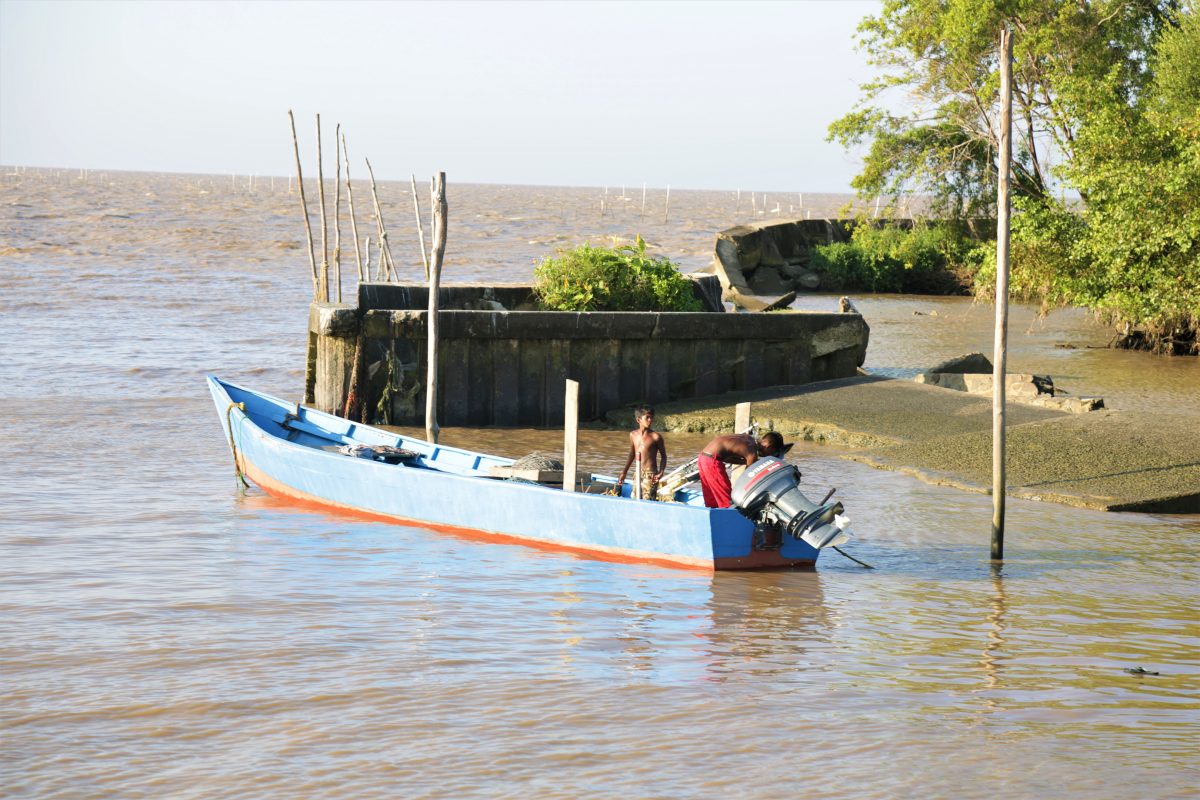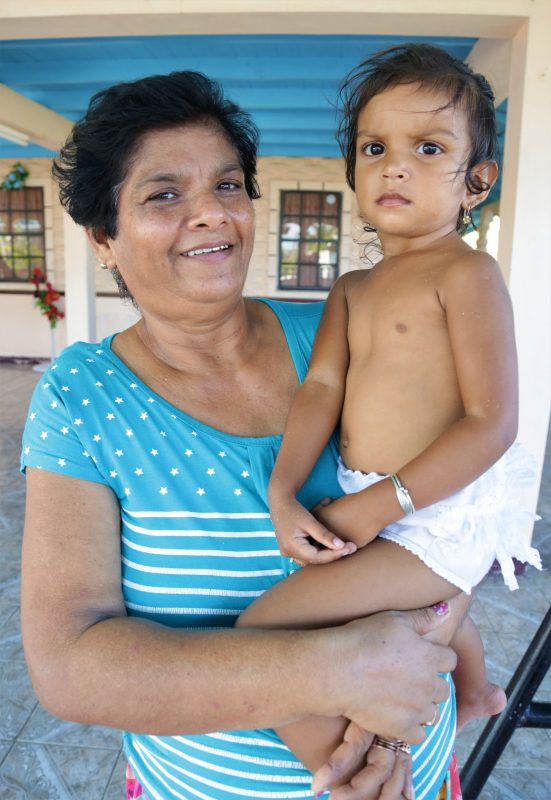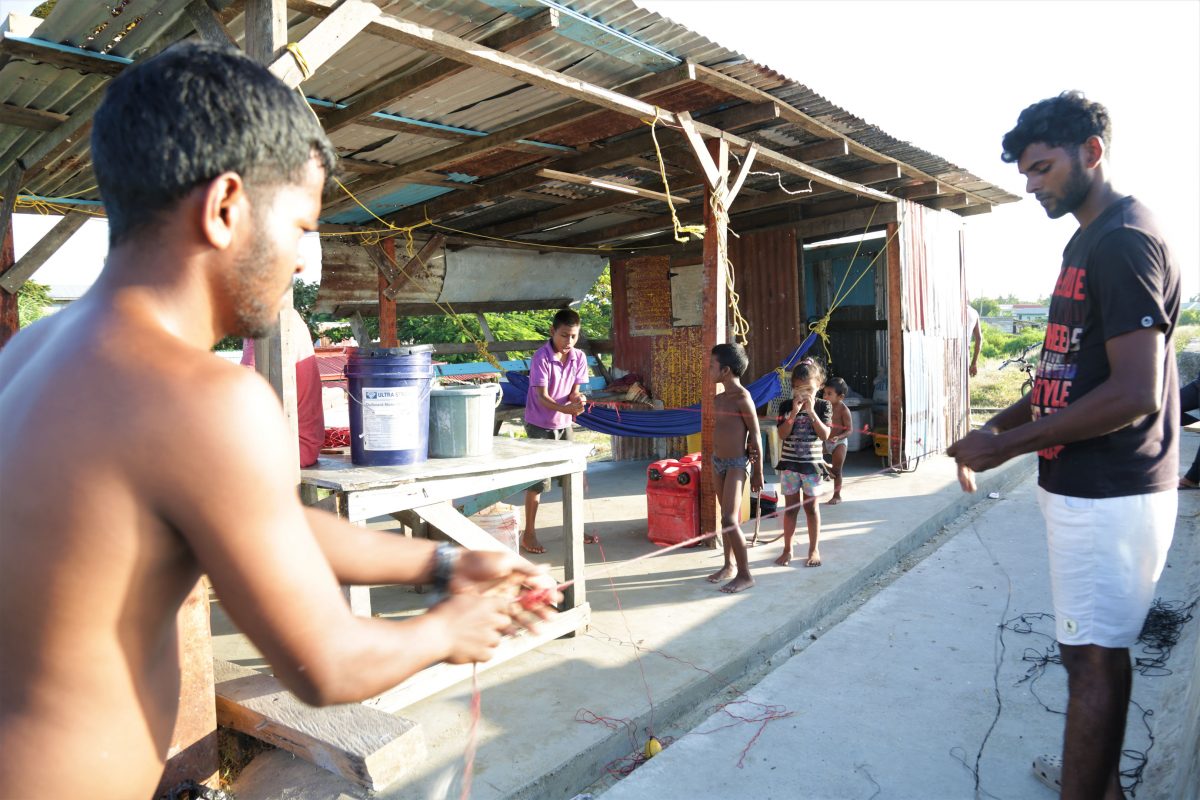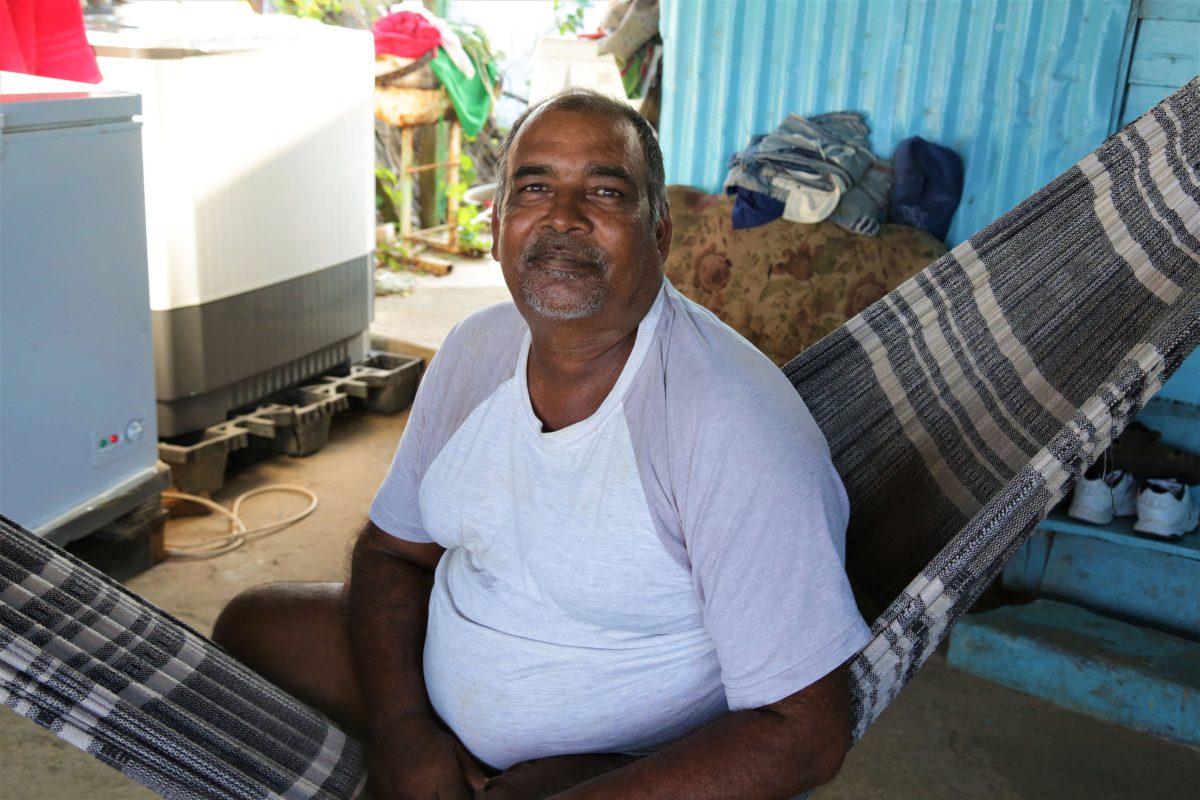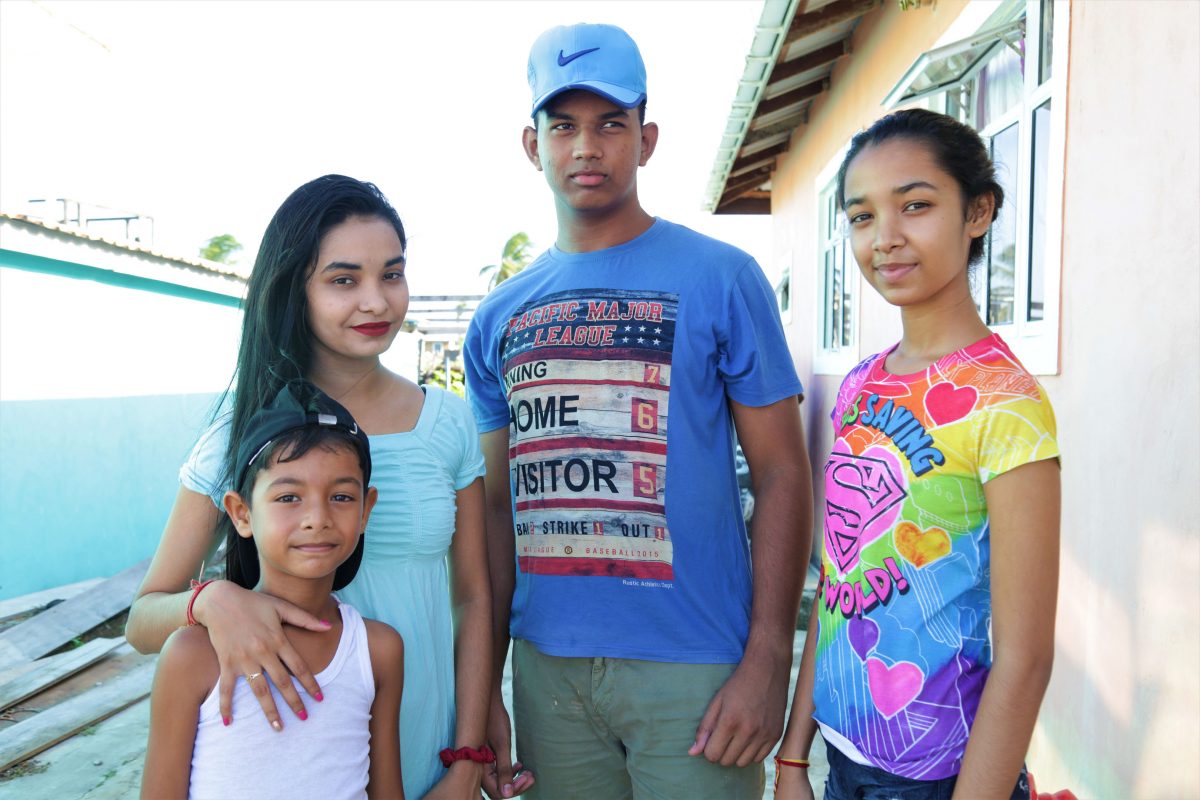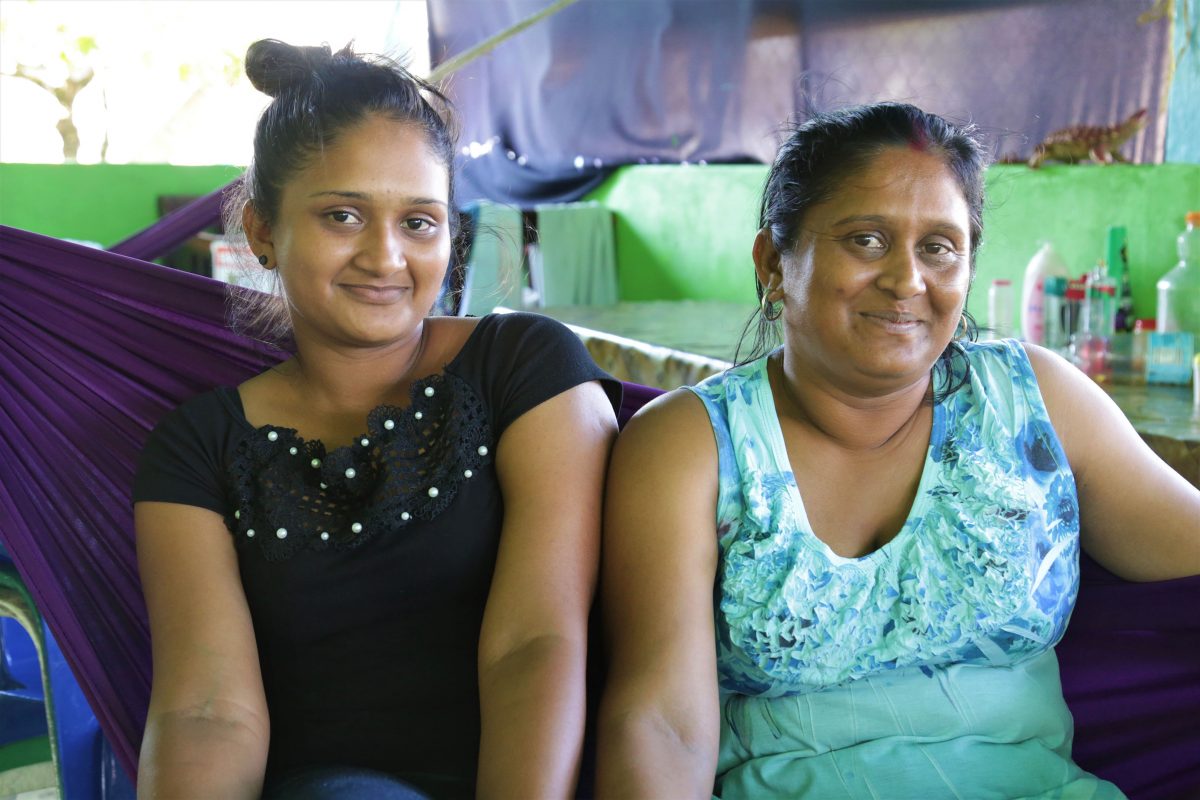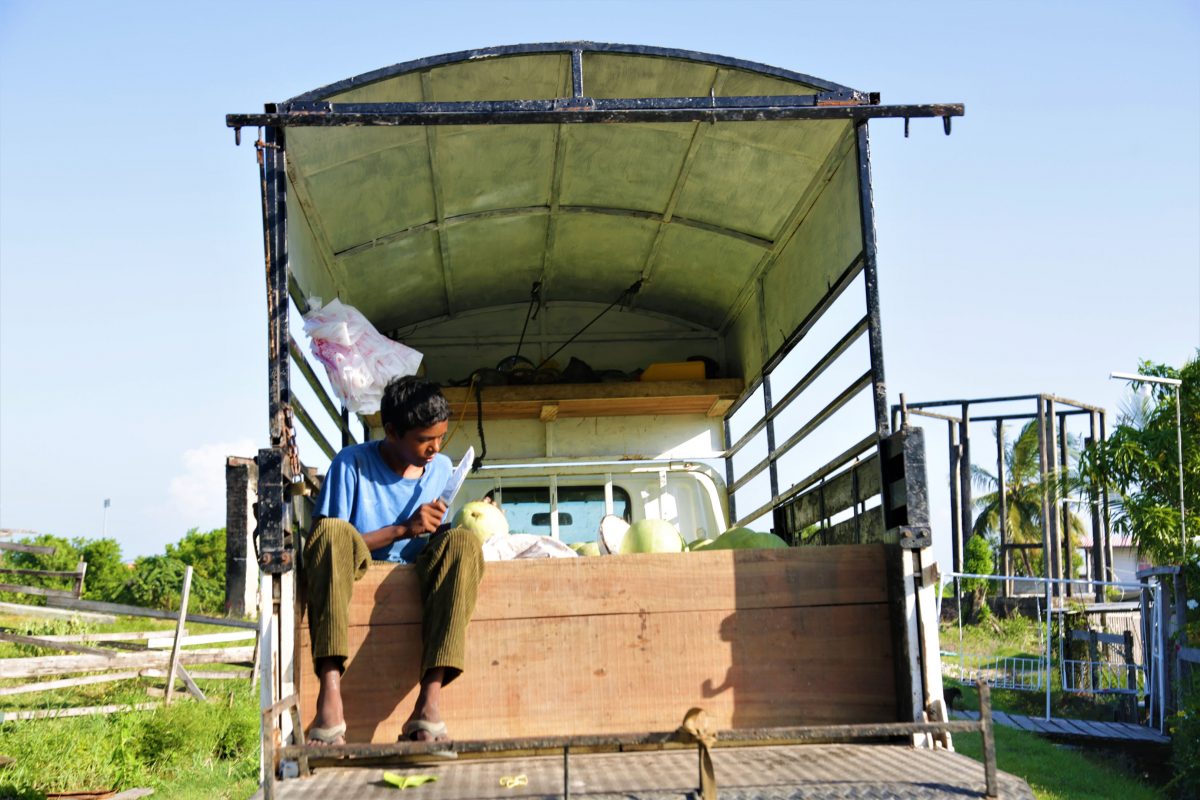Wine Bush, a sub community of Leonora, West Coast Demerara is bordered by Groenveldt and the seawall that keeps the Atlantic at bay. This beautiful and close-knit neighbourhood is a haven to 52 families, many of whom were originally from Groenveldt.
In just a matter of two decades, Wine Bush has developed a lot. Before then it was a forested swamp filled with purple berries and the only persons who set foot there went to catch crabs, cut firewood and have bush cooks. Now, Wine Bush’s residents have access to potable water and electricity as well as restaurants, places of worship, a police station, a hospital, supermarkets and schools. Most of the roads are paved except for two, which they wish to be done. Residents also want streetlights to be installed.
Shamshudeen Ally, better known as ‘Frazer,’ knows about those days. Born and raised in Groenveldt, Wine Bush was Ally and his friends’ playground. “This was sheer bush,” he said. “Abi use to call it Wine Bush. It had some purple berries on it that we call baby jamoon, but it wasn’t the same jamoon tree; this tree used to grow small. Some ah the long-ago people used to use dem fuh mek wine that dey used to soak fuh Christmas time. Abi use to play war-break and mek baby house and cook and so inside hey. Abi would come across the trench with a boat fuh cut wood fuh carry back fuh bun fireside but used to end up ah play.”
Ally shared that he and his siblings were expected to return home immediately upon getting the wood, but they would stay to play and eat the berries. Knowing that the fruit would stain their mouths, they would pick black sage stems and try to clean their teeth before going home. However, their parents knew after one look at their faces what they had been up to.
Sometimes they took their slingshots along to shoot at birds. Or they would take seasoning, rice and peas from home for a bush cook and catch fish to add to their dish. Sometimes they would have sweet-water fish like Patwa (Black Acara) but on numerous occasions they got their catch from the ocean – the Four-Eyed fish often seen on the water top. Those fish, Ally said, fed on sand and they had to ensure they removed the sand before cooking them.
Later, when Ally was older and had a family of his own, he was among the first set of squatters to put up shacks in Wine Bush. There was no electricity then, so he bought a 12-volt battery to provide light in his home. Ally also purchased black tanks to catch rainwater as there was no water supply as yet. He later purchased a generator, which used $1,000 in gas daily, prior to the area being added to the power company’s grid. He said his expenses were a lot less after the community was supplied with power.
Initially, the access to potable water was limited to 3 pipelines along the road. Residents kept a mental timetable of whose turn it was to fill up. Each night, different neighbours ran hoses from the pipelines into their yards. Those who did not have hoses borrowed their neighbour’s. According to Ally, they all cooperated and worked together to ensure each resident had a turn.
A fisherman, Ally works with his two sons out at sea His wife at one time assisted in providing for the family’s livelihood by working as a fish vendor.
Asked about danger at sea, Ally said it was not close to how dangerous it was for persons working on land. Of all the years he has work at sea, he recalled, his life was only at risk once. During this time, he worked with another boat owner. He and the two other men who made up the crew were attacked by pirates, who held them at gun point and relieved them of their boat engine and personal valuables but they were otherwise unharmed. After time passed and they had not returned, other fishermen found them stranded at sea.
Ally said life at sea has its breathtaking moments as well. He spoke of enchanting sunrises on the calm sea and striking red sunsets. He said too that he has seen tornadoes (waterspouts) on the Atlantic and while they were an exciting sight, they always keep their distance. They usually appear around this time of the year, he said, August/September and he has seen two at one time. They do not last long, he said, but mentioned that one had made landfall in Wine Bush, ripping zinc sheets off of roofs. Ally recalled that the circular wind event had occurred some 20 years ago.
Turning to economics, he said that he noticed a decrease in fish sales for the first time, some 3 years ago. He noted that the export market for Gillbacker (catfish) had dried up. Previously, he said, Gillbacker was sold for $500 wholesale to buyers who exported it. Today buyers are rare. Opening his freezer, Ally revealed week-old frozen Gillbacker that he was unable to sell. He planned to thaw and smoke the fish.
During the months of February, March and April, Ally and other fishermen catch shrimp, which they dry/preserve for sale. He said this makes better money than the Gilbacker. Customers, he said, would sometimes try to bargain, but because the shrimp is dried and he does not have to worry about it spoiling, he can choose not to drop his prices.
As regards infrastructure, he said drainage is a critical issue. According to Ally, a particular resident has concreted over the drain, thereby preventing it from being dug. Therefore, when it rains, water is backed up. He would also like to see the part of the reserve in front of his home paved to allow for vehicles to get to the houses.
‘Nice people living nicely together’
Tina Jodhan sat under her house with her daughter. She and her family have been residing in Wine Bush for 21 years. They had also initially squatted on their desired piece of land. At the time she made the move, there were only 10 other families in Wine Bush. The area is now regularised.
During the first few months, the residents got to their homes by taking a canoe across the canal from Groenveldt. They eventually came together and purchased a plank long enough to connect the two communities. The plank, though scary to cross, provided easier access for persons living on the dam in Wine Bush to fill their buckets of water at Groenveldt.
The once clear and clean canal, Jodhan pointed out, is now clogged with weeds. Despite residents contacting the Neighbourhood Democratic Council (NDC) to have the canal cleared, nothing has been done. On several occasions, Jodhan stated, anacondas and caimans have been spotted coming out of the canal. She said having the reptiles around is dangerous for the people in the area, especially children and added that anacondas have made off with a resident’s poultry.
There was Sindoor in Jodhan’s hair, indicating that she is married and also that she is Hindu. There are no places of worship in Wine Bush, but residents do not mind because they are not far away. The mandir Jodhan attends is in Groenveldt.
The woman said that the dam in front of her home is the first part of Wine Bush one arrives at when coming from Groenveldt, yet it has remained unpaved. During last year’s local government elections, she said, residents were promised that a road would be constructed on the dam. Recently they came together and signed a petition for a road; they are currently awaiting the outcome of this.
Jodhan’s husband was relaxing nearby. He is a carpenter. Carpentry is one of the two main jobs in Wine Bush; fishing is the other. The family agreed that living in Wine Bush is comfortable, peaceful and comes with a breezy atmosphere. They, too, wished for streetlights in the area. Not so long ago, the Jodhans and several other families came together and purchased a streetlight for the area where they live, but they said it has since been moved by persons from within the NDC to another part of Wine Bush.
In another street, siblings and their cousin played a game of cricket. Nearby Hilly (only name given) babysat her grandchildren. She noted that when she first arrived to live in Wine Bush, there were only two other families squatting here.
“When I move here, I was thinking about getting my own home because how long will you live with family?
“There are nice people here and we live nicely together,” Hilly said. As she spoke, the baby she held in her arms babbled.
Recalling the early struggles she faced, Hilly spoke of fetching water across from Groenveldt.
Hilly said that before her husband passed on, he worked as a nurse then as a vendor. Her son has since taken up the vending and she helps to babysit his children. Sometimes she assists her son who sells produce at the Leonora and Parika markets.
Hilly likes everything about Wine Bush; she is quite satisfied with things just the way they are. Life in Wine Bush, she said, is comfortable and she could ask for nothing more.
